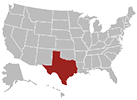
If you are interested in a rewarding career that rebuilds lives, why not become a professional recovery coach?
Also known as a professional peer support specialist, the professional recovery coach (PRC) position is a form of peer support.
According to Net Institute, there are over 24 million people in recovery from various additions.
Recovery coaches play an essential part for anyone navigating the physical, psychological, and social pitfalls of recovery.
Recovery coaches encourage a positive outlook, decrease hospital stays, and improve social skills.
Highly supportive, recovery coaches are trained in the elements of social work.
They are a grounding authority for individuals struggling with chemical dependency.
Coaches are often integral companions for those walking with mental health challenges.
Recovery coaches focus on non-clinical issues such as housing, employment, scheduling, and civil requirements.
But, they also assist in locating vital resources.
Page Navigation
Steps to Become a Professional Recovery Coach in Texas
Obtaining your professional recovery coach certification in Texas is not difficult but there are a few general requirements that must be met.
Established by the Texas Certification Board of Addiction Professionals, the law states that one must be 18 years or older and have a high school diploma or GED to begin their training.
It also requires a personal recovery experience of two or more years.
Additionally, there are approved core training modules that prepare recovery coaches to assist individuals to reintegrate into society.
The first step is education.
Texas requires a total of 46 educational hours in the following categories:
- 10 hours minimum of advocacy training
- 10 hours minimum of recovery support training
- 10 hours minimum of mentoring/education training
- 16 hours minimum of ethical responsibility training
The second step is experience.
Once trained, additional professional experience is necessary before someone can apply to the state board.
To finalize training, the following is required.
- 500 hours of work experience; either volunteer or paid
- 25 hours of supervised work
- Acceptance of ethical standards.
The third and last step to becoming a professional recovery coach in Texas is an application to the state board.
For those who want a more comprehensive certificate that is recognized throughout the world, the IC&RC examination is available.
This 60-minute multiple choice exam requires a separate fee and can be taken online or at scheduled locations throughout the state.
Fees
In addition to the cost of the coursework, there is an initial application fee and renewal or recertification fee payable to the Texas Certification Board of Addiction Professionals for all would-be recovery coaches.
For those who want to upgrade their credentials, there is also an IC&RC certification application fee.
Professional Recovery Coach Instruction in Texas
There are over three dozen approved entities that offer PRC training in Texas.
A full list can be found on the Texas Certification Board website.
Council on Recovery
One of the larger Recovery Coach training programs is located in Houston, Texas.
This 46-hour training course provides attendees with the fundamental skills and resources to assist their charges with daily tribulations.
The one-week in-person course costs roughly $195. No financial aid is available.
Peer Leadership Academy
This online program offered by Communities for Recovery involves two major instructor-led academic modules.
The prerequisite last 19.5 hours costing roughly $300, while the core training modules of 46 hours cost roughly $495.
No financial aid is available.
NET Training Institute
The NET Training Institute is an IC&RC-accredited online program that offers Continuing Education Units (CEUs) and professional advancement modules.
Cost varies by course.
Financial aid and payment plans are available.
Recovery Coach Representative Schools in Texas – Summary Table
Top 3 Schools in Texas
| School Name | Address |
|---|---|
| Council on Recovery | 303 Jackson Hill St, Houston, TX 77007, United States |
| Peer Leadership Academy | |
| NET Training Institute |
Salary for Professional Recovery Coaches in Texas
After receiving recognition from the Texas Certification Board of Addiction Professionals, you are ready for work.
Your particular skills, experience, and preferences will determine your basic salary.
However, the average annual compensation rate for Texas recovery coaches is $33,750.
The highest salary reported on Salary.com is $37,750.
There are a host of opportunities in the recovery community from state organizations, jails, and high schools, to non-profits and private facilities.
Professional recovery coaches are in high demand with unique opportunities in Texas and on the west coast in California.
There is also high demand for trained and certified PRCs on the east coast in New York and Pennsylvania.
Annual Salary Range:Average Salary of Professional Recovery Coachs in Texas
| City Name | Salary |
|---|---|
| Houston | $35,016 |
| Dallas | $34,190 |
| San Antonio | $33,189 |
| Austin | $33,846 |
| El Paso | $30,101 |
| Fort Worth | $33,533 |
| Arlington | $33,478 |
| Corpus Christi | $32,301 |
| Plano | $34,190 |
| Garland | $34,190 |
Regional Salary in Texas
| Region | Employed | Avg. Annual Salary | Avg. Hourly Pay | Top 10% Annual Salary | Bottom 10% Annual Salary |
|---|---|---|---|---|---|
| Abilene, TX | 140 | $47,720 | - NA - | $71,830 | $21,990 |
| Amarillo, TX | 140 | $45,010 | - NA - | $74,250 | $18,760 |
| Austin-Round Rock-San Marcos, TX | 1,780 | $57,670 | - NA - | $81,640 | $21,420 |
| Beaumont-Port Arthur, TX | 180 | $47,030 | - NA - | $83,960 | $20,490 |
| Brownsville-Harlingen, TX | 50 | $35,020 | - NA - | $59,750 | $20,480 |
| College Station-Bryan, TX | 280 | $75,580 | - NA - | $# | $22,320 |
| Dallas-Fort Worth-Arlington, TX | 4,900 | $52,600 | - NA - | $82,660 | $21,250 |
| El Paso, TX | 270 | $46,080 | - NA - | $79,930 | $17,380 |
| Houston-Pasadena-The Woodlands, TX | 3,740 | $45,320 | - NA - | $78,290 | $21,200 |
| Killeen-Temple, TX | 190 | $38,530 | - NA - | $65,410 | $17,460 |
| Laredo, TX | 70 | $44,720 | - NA - | $97,520 | $19,290 |
| Longview, TX | 110 | $40,310 | - NA - | $63,460 | $18,960 |
| Lubbock, TX | 310 | $89,670 | - NA - | $139,400 | $18,030 |
| McAllen-Edinburg-Mission, TX | 210 | $54,510 | - NA - | $93,000 | $21,010 |
| Midland, TX | 120 | $44,080 | - NA - | $78,890 | $20,800 |
| Odessa, TX | 90 | $61,880 | - NA - | $127,900 | $23,750 |
| San Angelo, TX | 70 | $49,410 | - NA - | $83,400 | $20,840 |
| San Antonio-New Braunfels, TX | 1,240 | $49,540 | - NA - | $78,950 | $21,430 |
| Sherman-Denison, TX | 60 | $38,880 | - NA - | $70,760 | $18,670 |
| Tyler, TX | 90 | $40,010 | - NA - | $65,210 | $20,790 |
| Waco, TX | 220 | - NA - | - NA - | - NA - | - NA - |
| Wichita Falls, TX | 70 | $42,530 | - NA - | $71,130 | $18,470 |
* Employment conditions in your area may vary.
Frequently Asked Questions
Should a Texas Professional Recovery Coach certificate be renewed?
Texas recovery coaches are required to recertify every two years.
They must also gather 20 or more hours of continuing education units, (CEUs) – with six hours of ethical standards.
What skills does a Professional Recovery Coach in Texas need?
Recovery coaches are honest and open.
They are also authentic and have excellent communication skills.
But most of all, a good recovery coach listens and empathizes.
Are Recovery Coaches therapists?
No, recovery coaches are not therapists.
And they are not medically trained.
Instead, they provide a tether with extensive knowledge and skills to deal with numerous social situations.
They are trained in harm reduction, moderation management, and 12-step programs.
But most of all, they are extremely familiar with city resources.
What are the ethics and values of a Professional Recovery Coach in Texas?
Recovery Coaches are a lifeline when stress or events threaten an individual’s ability to remain clean and sober.
They believe in honesty.
And uphold respect and authenticity as foundation values that support acceptance of the vagaries of life.




